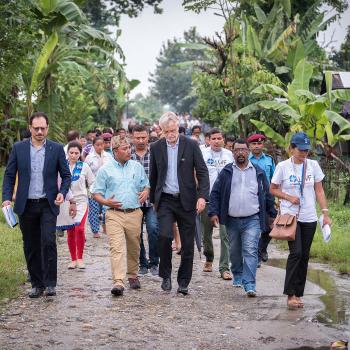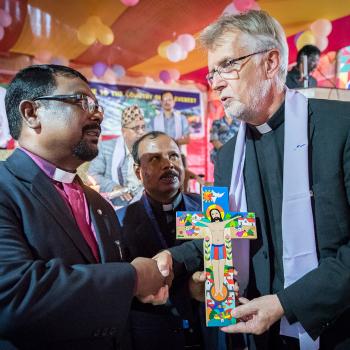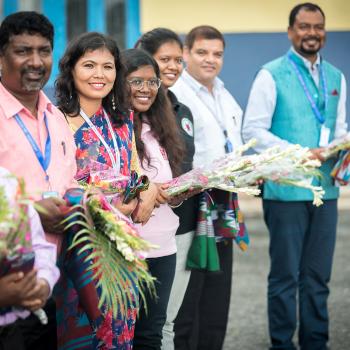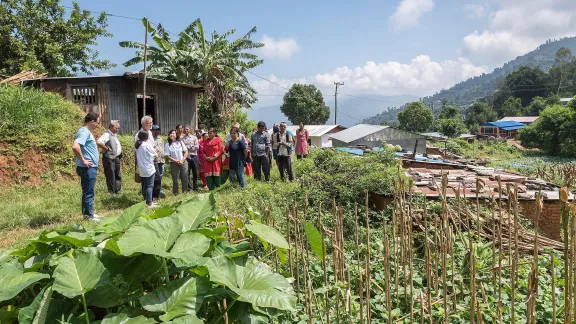
Fertile soil: community vegetable gardens in Nepal funded by the LWF not only improve nutrition but mean surplus crops can be sold at market. Photo: LWF / Albin Hillert
LWF general secretary visits post-earthquake rebuild in Nepal
(LWI) - “The LWF goes where no one else goes and the LWF goes to people who others hardly meet,” Lutheran World Federation (LWF) General Secretary Rev. Dr Martin Junge said after a visit to Kavre district, central Nepal.
Over the past three years, LWF World Service has supported communities recovering from the 2015 earthquake, which struck with devastating effect.
In Kavre alone, the post-earthquake rehabilitation and livelihood recovery project has supported 388 households in securing improved and safe houses.
Nearly 1200 households now have better access to safe drinking water and improved sanitation facilities. LWF also supported the construction of toilets and water supply schemes in 16 earthquake affected schools in Kavre, benefitting 1875 students and teachers. Just over 400 households have both increased and diversified their sources of income.
Lives change dramatically
In Maidan, residents have developed vegetable farms and sell some of the produce. Today, 28 households make use of a community-run vegetable collection center. Support from the project has allowed the community to improve productivity, save time and get to markets more readily, allowing surplus from their harvests to be sold in the nearest town, Kuntabesi.
“Our lives have changed dramatically in only the past year,” says Maiya Devi Tiwari, chair of the collection center, which was set up late last year.
Maiya Devi Tiwari is chair of the Maidan community vegetable collection center.
“Women are finding a way out of the households and can participate in the work of our community,” Tiwari explains. The LWF project encouraged women to work outside their homes and also increased their recognition as contributors to family income. “The new income allows for both savings and support for our children’s education,” she adds.
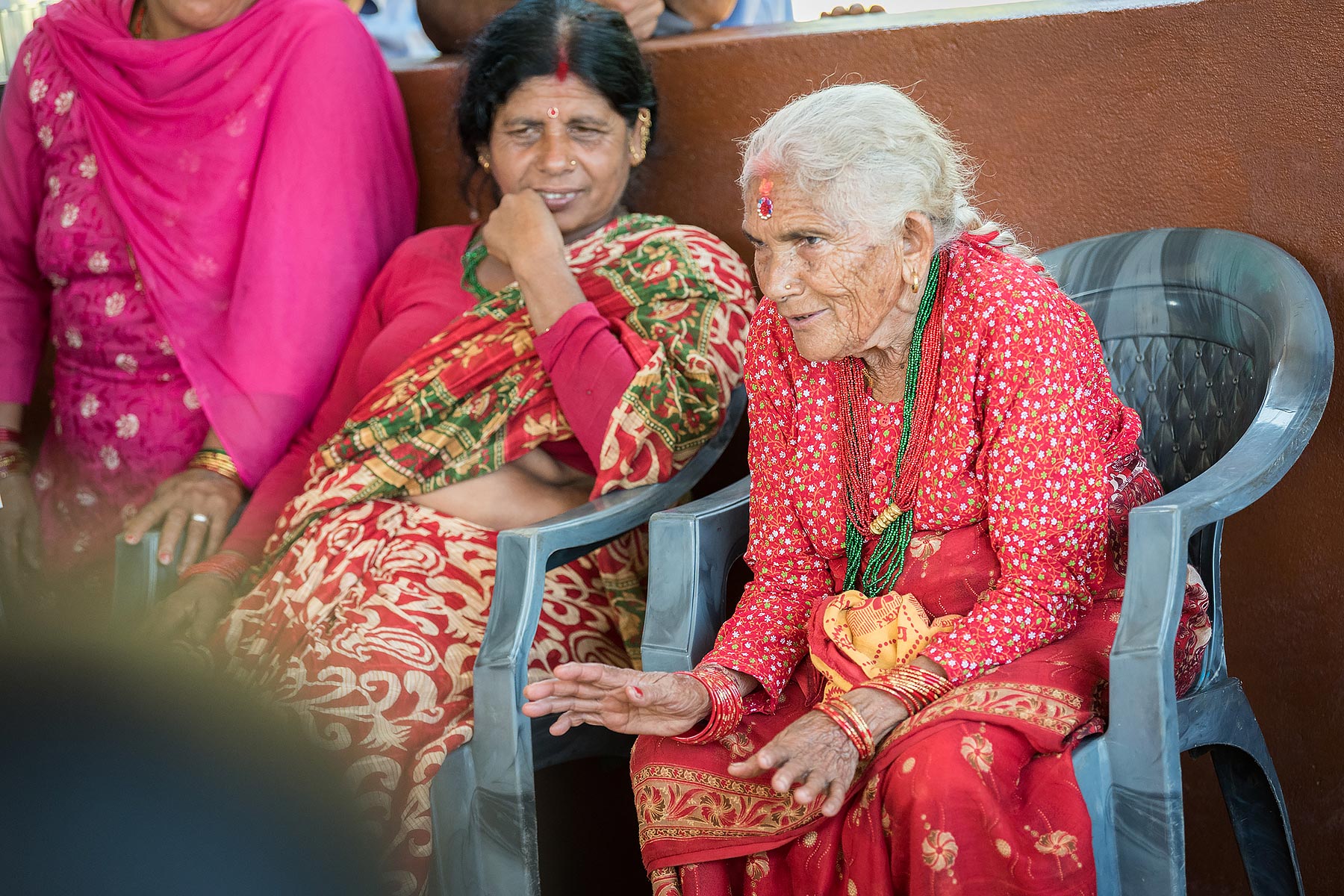
Iwasa Devi Sapkota, 74, has seen many generations of children grow up in Maidan. “There was more hardship in the past,” she says. “I remember people dying even of preventable diseases and women not allowed to leave the house.”
Sapkota, a brahmin* reflects on the past, present and future of the Maidan community in Kavre. “Seeing my grandchildren grow up now, I believe education is the most important thing for them.”
Permanent houses a key to security, health and dignity
As the 2015 earthquake caused essentially every building in the community to collapse, LWF World Service also supports the construction of earthquake-resilient houses.
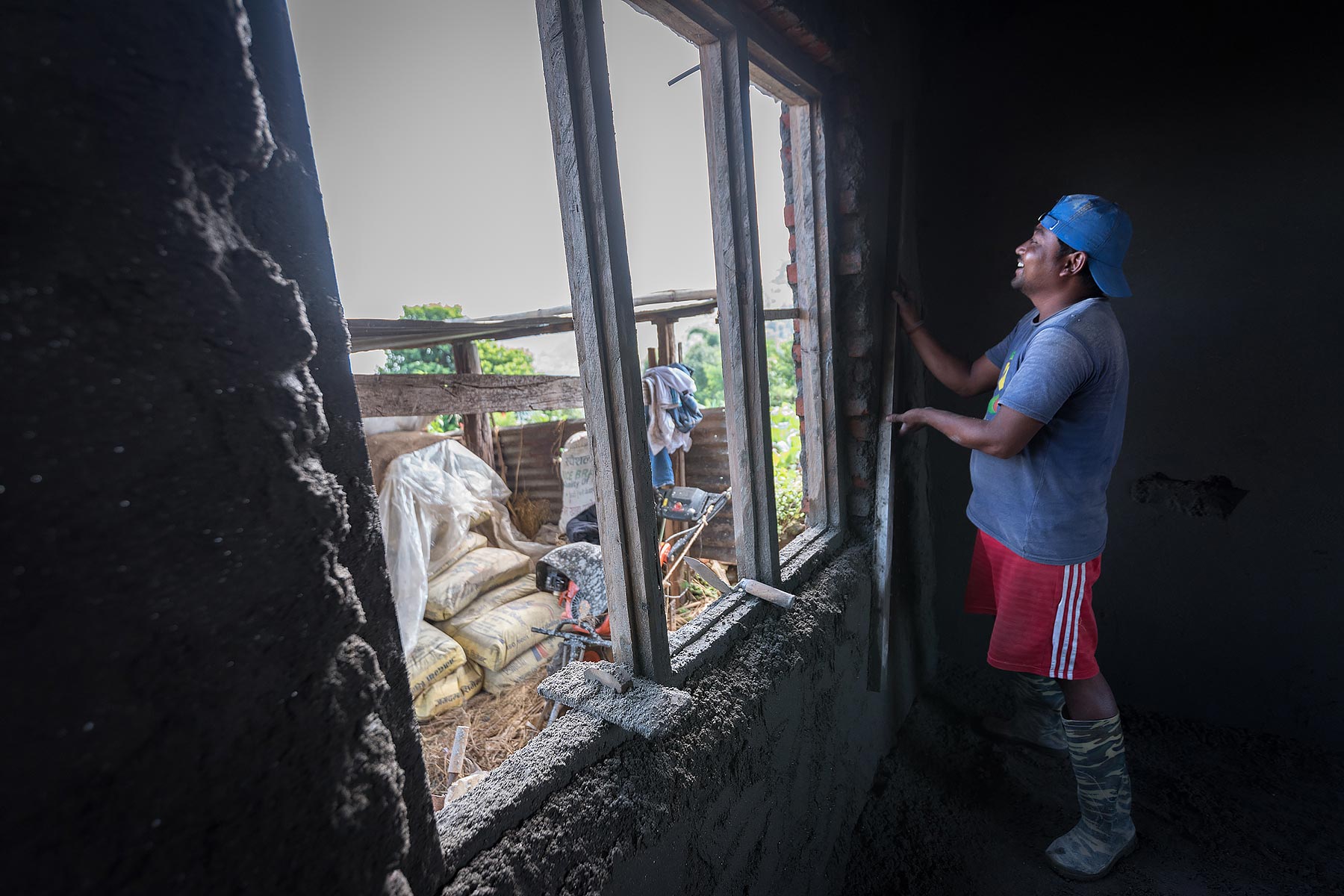
Broma Chao Devi works on the reconstruction of a house in Maidan.
Because 75 percent of people affected by the earthquake still live in temporary shelters, steps towards permanent housing are both safer and healthier for the Kavre population.
Samjhana Mijar lives with her six-year-old daughter, Saloni, in Biruwa, not far from Maidan in Mandandeupur Municipality, Kavre. In Biruwa, LWF World Service has helped 31 Dalit households to build permanent houses out of 388 houses built in the district.
“When the earthquake happened, the church provided us with tarpaulins and some poles for temporary shelter,” Mijar recalls.
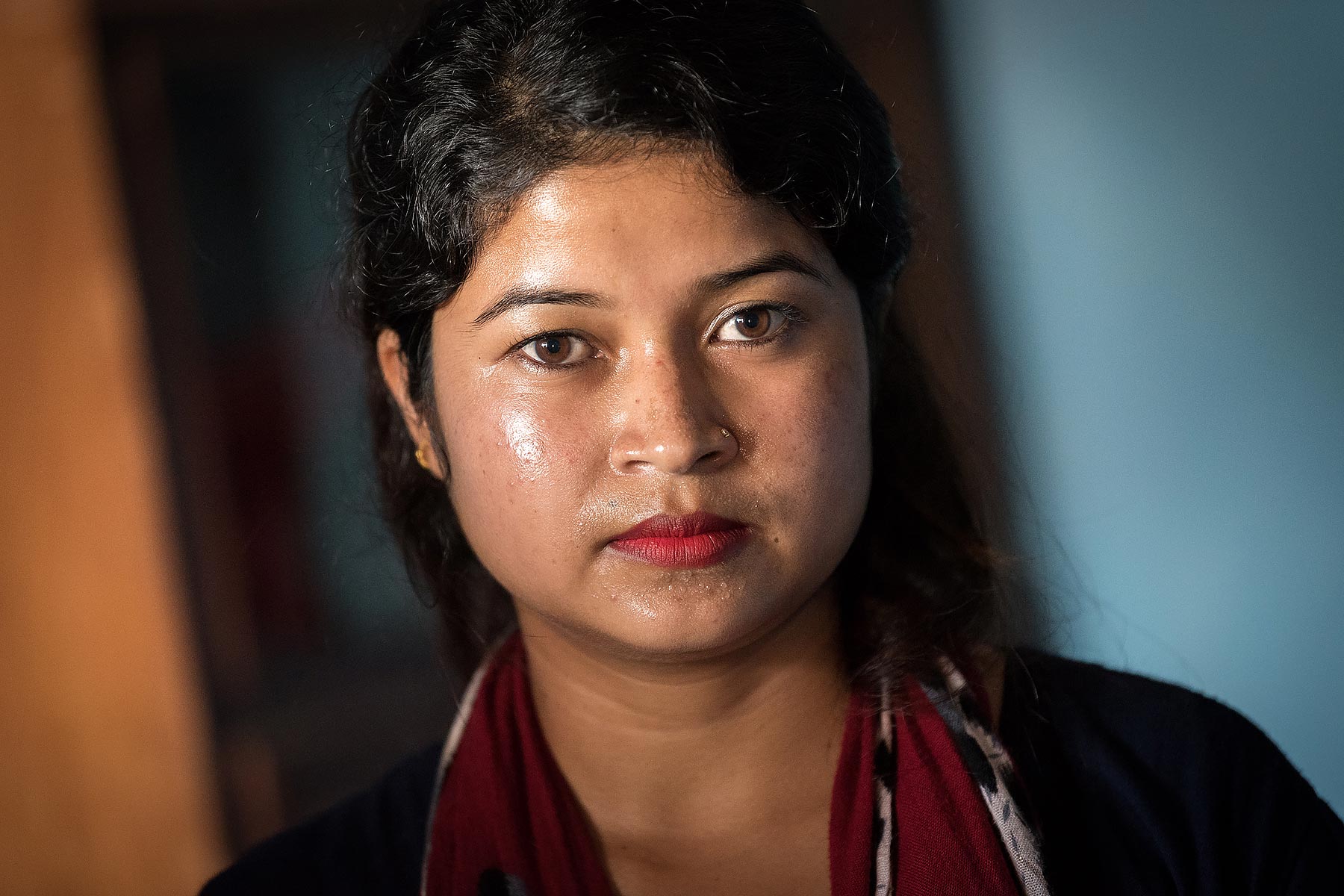
Samjhana Mijar and her daughter Saloni are one of 15 Dalit households in Biruwa which have received LWF support to construct permanent houses.
If it were not for LWF, then I don’t think this community would have been transformed like this. Many of us would not have been able to rebuild our houses in this time.
“As many of us do not have a good economic status, we are not able to make our own houses. So if it were not for LWF, then I don’t think this community would have been transformed like this. Many of us would not have been able to rebuild our houses in this time,” Mijar says.
Nibha Shrestha, governance and regional program coordinator at LWF Nepal, says, “The LWF has provided materials, but also technical advice, and we ensure that the construction of permanent houses is carried out according to design and in line with principles of earthquake-resilience, from the foundation to the roof.
“What I appreciate most about our work is when we can see that the surrounding community is also picking it up,” says Shrestha. “For example when communities we have not even supported directly start applying the same principles in building their houses.”
LWF presence strengthens dignity
There are other ripple effects too.
As LWF general secretary Junge visited Biruwa on 17 September, a range of other visitors, including local authority officials, came to sit and eat with the community. In doing so, they affirmed the equality and dignity of all people, regardless of ethnic group, economic situation or caste.
Dalits find themselves among the most marginalized groups in Nepalese society, so much so that members of other castes will often not accept food from them even if offered. What may have appeared an ordinary lunch, was in fact quite special.
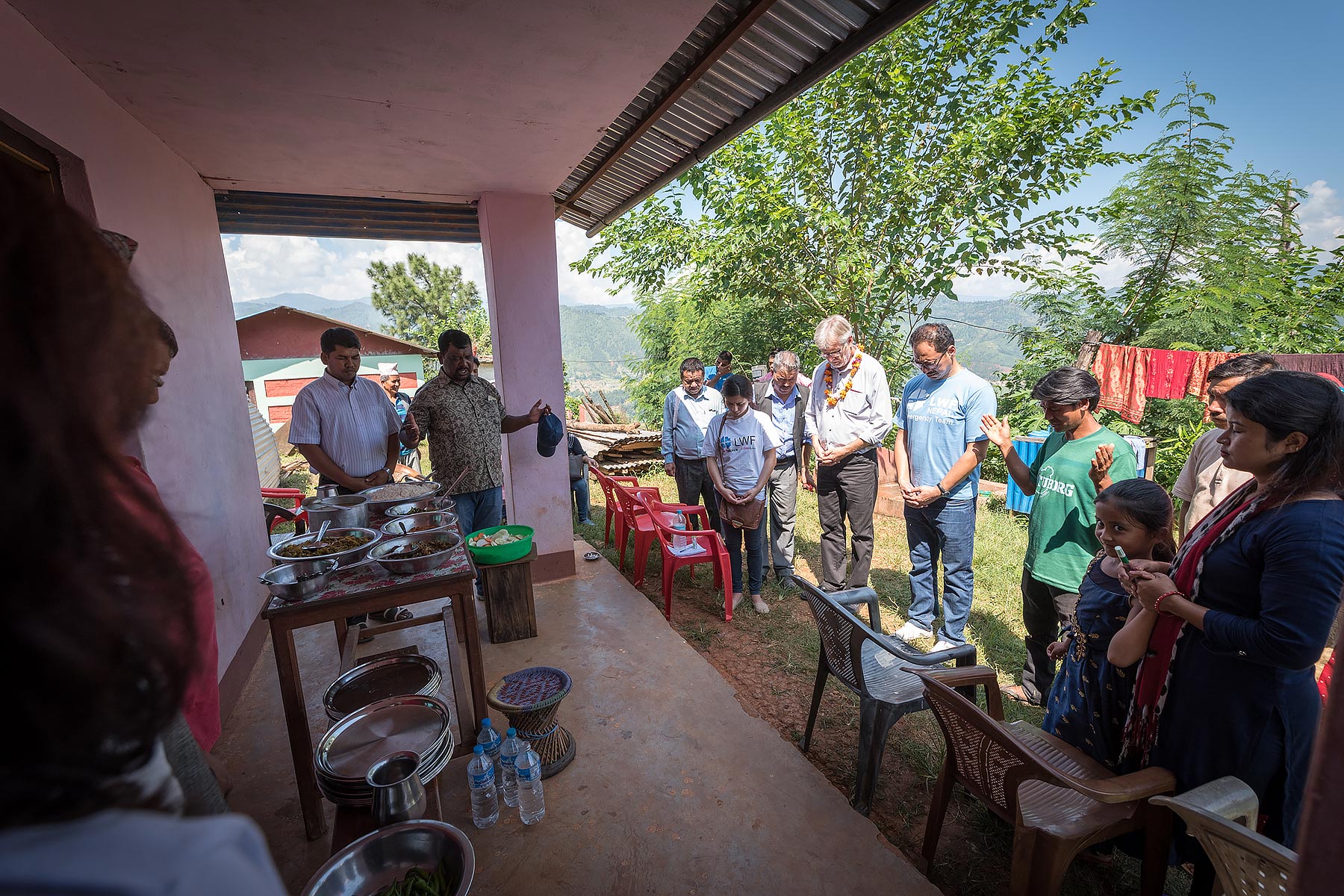
Rev. Joseph Soren from the Nepal Evangelical Lutheran Church blesses the food before the meal starts in Biruwa, Kavre district, Nepal.
Contribution by: LWF/ Albin Hillert
*Hindu priest or teacher
